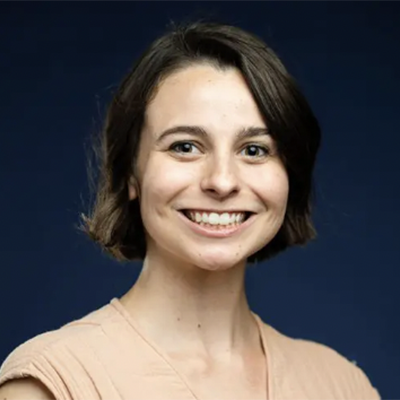DEADLINE: DECEMBER 31st, 2024
Critics, Dramaturgs and other Scholars
Add Your Voice to the Future of Theatre
We invite you to explore the many ways in which theatre journalists respond to theatrical productions. This group of students explores a variety of ways to approach theatre criticism, advocacy
About the Institute
If you join the Institute for Theatre Journalism and Advocacy (ITJA) you will participate in a series of seminars focusing on the transitional nature of theatre criticism in our technological world. A professional theatre critic will lead the workshops and mentor you with input from the ITJA Coordinator. The types of topics included in the institute are the professional life of the critic, online criticism, issues in criticism and strategies for finding employment in this competitive field or starting your own blog!!
If you commit to participating in ITJA, you will attend up to three productions that have been invited to the festival. You will write critiques or responses about the assigned shows. Reviews must be written for an audience that includes the general readership of the festival attendees. The approximate length of the reviews will be around 500 words, though exact length requirements may vary.You will be taught strategies that assist you in your development as a critic or journalist. The seminar schedule will be in place prior to the festival and the deadlines and process to be followed during the festival will be announced at the first seminar in Madison.
At the awards ceremony, one participant will be honored and will receive a cash award
The daily ITJA workshops during the 2025 festival will be hosted by a hosting critic to be named.
From Mark Charney – National Coordinator of the Institute for Theatre Journalism and Advocacy
The KCACTF sponsors workshops in each region called the Institute for Theatre Journalism and Advocacy (ITJA). Once called the National Critics Institute, the newly envisioned ITJA was established to assist in elevating the level of arts criticism and to provide writers the opportunity to grow at the same pace as the artists, whose work they review and interpret.
Like the Critics Institute before it, it works to train good writers, but ITJA does more. Criticism, especially with the advent of technology, has changed radically, and the remounting of the ITJA reflects that. Critics from the regional institutes who are fortunate enough to study at the O’Neill National Critics Institute, for example, rarely explore just criticism as a field. Instead, they seek work in all aspects of theatre.
While a few head to graduate schools in criticism, sure, and many work as journalists, just as many become dramaturgs, art administrators, public relation/marketing specialists, and writers of plays and screenplays, among other jobs. Those who do become critics rarely work using over night deadlines, and most of the writing is sent electronically. Many graduates from the old Critics Institute are now working in radio and television, orally expressing their opinions using sound clips from the plays or movies they are reviewing.
The New ITJA veers from the classroom model of just writing reviews and critiquing them in round table format. Students who participate are inventive within this framework; they write blogs, previews, interviews, and position papers; they frame their ideas orally (often even in radio assignments); and they work with media specialists who currently embrace the technology of the 21st century. The New ITJA asks the critics to connect with dramaturgy, possibly even sharing a workshop or an assignment. They interview, observe, and reinvent, responding more actively to and with invited productions, and they interact with the rest of the festival, rather than working sequestered from it.
In the past, the school hosting the festival has provided the majority of the student critics who have participated in the institute, but in the last many years, we have encouraged each of the participating schools to publicize the Institute more enthusiastically. The process is simple and the rewards are many.
ITJA invites the best writers in your theatre program–and outside of it–to participate in the newly, revised institute, writers who have an interest in advocating for the arts in a myriad of forms. The students selected will meet in daily workshops to look at professional and unprofessional theatre critiques with critics and media specialists with diverse backgrounds in theatre, journalism, criticism, and writing. They will also traverse among the festival, participating actively as reporters, interviewers, and recorders/interpreters of the events in which they actively critique and analyze. Their workshops are no longer limited to a table like an English class, but they use the entire festival as their canvas, upon which they write, comment, and critique, all as theatre advocates. And they no longer post the reviews; instead, they find electronic means to share the best writing, often embracing the region’s website or other means of communicating that incorporates technology.
After the Institute is concluded, the participant who illustrates the most promise will be sent to a team at the Kennedy Center, who will choose the most promising four advocates from the eight submitted (one from each region) to advance to the Kennedy Center. From the four advocates selected, one writer will be advanced to work with Chris Jones at the prestigious National Critics Institute in July at the O’Neill Theatre Center during its national playwriting conference, where he or she will work with leading professional newspaper and magazine critics from across the United States. All expenses will be paid. But the four chosen advocates from the regions will be in Washington studying with critics such as Peter Marks from The Washington Post and Bob Mondello from NPR and the City Paper.
As Associate Director of the National Critics Institute as well as National Coordinator of ITJA, I invite you to find as many promising theatre advocates as you can to join our newly reframed workshop. If you think other departments have students who would be interested, please have them contact me directly at mark.charney@ttu.edu, but they must have a pressing affection for and knowledge of theatre.
Remember, we’re not looking only for students who want to be theatre critics, although we welcome them too—we’re looking for students in ALL disciplines who want to explore how they can best advocate for theatre using writing, oral, and other communication skills as their medium.
The Institute of Journalism and Advocacy
There is no entry fee, but entry is limited to the first FOURTEEN students who register.
INSTITUTE FOR THEATRE JOURNALISM AND ADVOCACY APPLICATION Send an email to the Institute for Theatre Journalism and Advocacy Chair at eschneider@trnty.edu with the information listed below. DEADLINE: December 31st, 2024
To enter: Please send an e-mail containing your name, street address, cell (or other) phone number, e-mail address, major, class rank (sophomore, graduate student etc.) and educational institution, noting your intention to be part of the KCACTF 2024 Institute for Theatre Journalism and Advocacy.
In a student’s application letter, the following paragraph must be included: “I agree to attend ALL of the Institute’s daily workshops and to attend and review festival main stage productions from among those designated by the ITJA coordinator. I understand that failure to do so might lead to my elimination from the Institute for Theatre Advocacy.” The letter will be considered contractual. Each student must have a faculty member verify that this person is a current part-time or full-time student by emailing the ITJA Coordinator with this confirmation.
Students must bring a laptop computer with them. If this presents a problem, notify the ITJA Regional Coordinator in advance and an attempt will be made to assist you. If you have any questions about these procedures, feel free to contact the Institute for Theatre Journalism and Advocacy Regional Coordinator, Emma Shneider, eschneider@trnty.edu.
Join our small but mighty area of the festival!

Emma Schneider
Institute for Theatre journalism and Advocacy Coordinator

